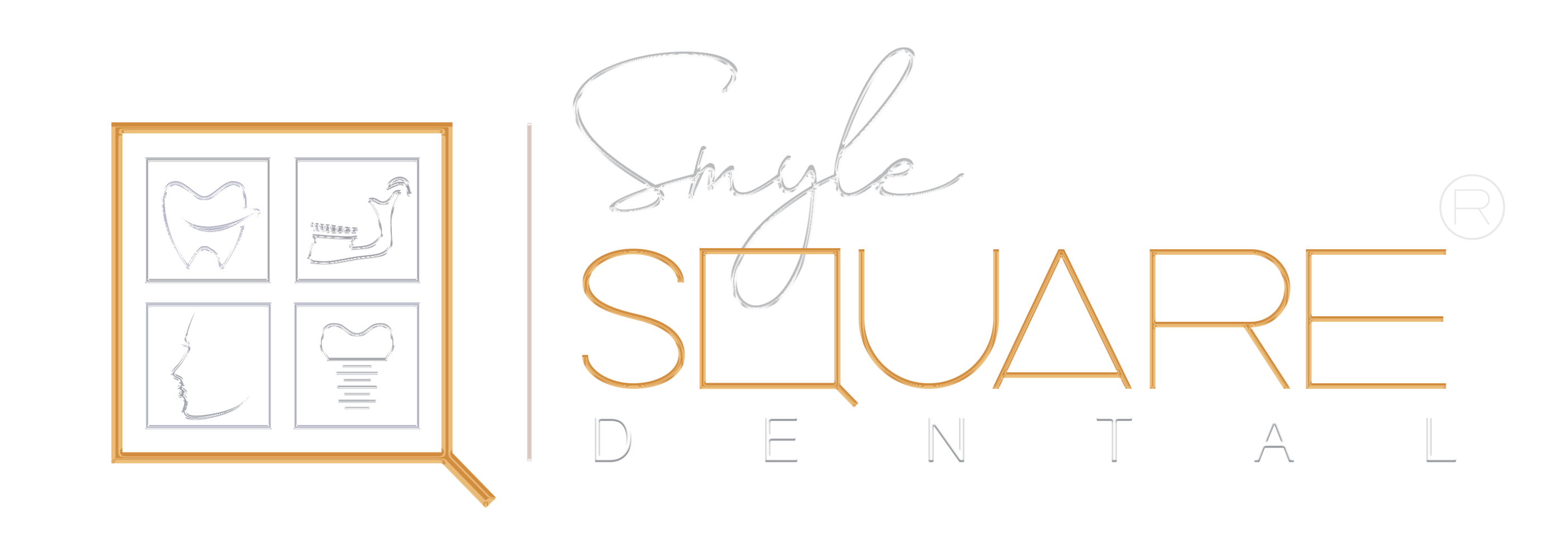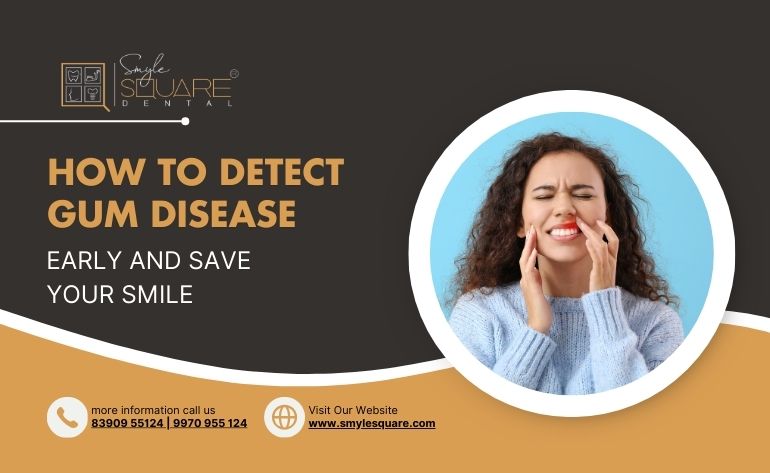How to Detect Gum Disease Early and Save Your Smile
One of the first things people notice about you is your smile, and maintaining its health involves more than just brushing and flossing. Gum disease can cause tooth loss and other major health issues if it is not treated. The good news is that gum disease can be prevented by identifying it early. We'll go over the warning signs and symptoms you should never overlook in this article, along with tips on how to keep your gums healthy in the future.
What is Gum Disease?
An infection of the tissues that support and surround your teeth is called gum disease, sometimes referred to as periodontal disease. Plaque, a sticky layer of bacteria, forms on your teeth and gums first. It can progress into two primary stages if unchecked:
- Gingivitis: In the early stages of gingivitis, your gums swell, turn red, and may even bleed when you clean your teeth. Fortunately, gingivitis can be reversed with the right treatment.
- Periodontitis: Gingivitis can develop into periodontitis if left untreated. In this case, the infection spreads more into the gums, resulting in tooth loss and bone damage.
Key Signs of Gum Disease to Look Out For
- Red, Swollen, or Bleeding Gums: Gum disease frequently manifests as inflamed, painful, or bleeding gums when brushing or flossing. Gums that are in good health should be pink and firm. Any change in consistency or color could be a precursory warning indication.
- Bad Breath (Halitosis): Everybody has bad breath occasionally, but if it persists, it may be a sign of a more serious problem, such as gum disease.
- Receding Gums or Loose Teeth: Gum disease can be identified by gum recession. More of the tooth surface is exposed when the gums begin to recede, increasing the teeth's susceptibility to decay. Furthermore, teeth may start to shift or feel loose, which is an indication of advanced gum disease that is compromising the bone structure.
- Pain or Sensitivity in Gums: The underlying tissues may be inflamed or diseased if your gums hurt to the touch or if you have trouble consuming spicy, cold, or sweet foods. Pay attention to these feelings because the progression can be halted with early treatment.
If you experience any of the above-mentioned symptoms, it is recommended that you consult a dentist. If you are looking for bleeding gum treatment in Fursungi, book an appointment with us.
Risk Factors for Gum Disease
- Poor oral hygiene: Plaque can accumulate and cause illnesses if daily brushing and flossing are skipped.
- Tobacco use and smoking: These behaviors impair your immune system and hinder the healing of your gums.
- Genetics and age: The likelihood of developing gum disease increases with age. Additionally, you may be more vulnerable if gum disease runs in your family.
- Health issues: Because they impair your body's defenses against infection, diseases including diabetes and heart disease can raise your risk.
- Stress: Excessive stress might compromise your immune system, making it more difficult to prevent gum infections.
How Regular Dental Check-ups Help
Regular dental checkups are the greatest approach to detect gum disease early. In addition to cleaning your teeth, your dentist uses specialized equipment to measure the depth of your gum pockets, look for early infection symptoms, and assess the condition of your gums. Professional cleanings can remove plaque and tartar buildup that cannot be removed with routine brushing, and X-rays can reveal hidden problems behind the gum line.
Steps You Can Take to Prevent Gum Disease
- Brush and Floss Daily: Your best defense against gum disease is to brush and floss twice a day. To get rid of bacteria and plaque, be sure to use fluoride toothpaste and a soft-bristled toothbrush. Remember to gently floss between your teeth to help get rid of bacteria and food particles from difficult-to-reach areas.
- Use a Mouthwash: You may refresh your breath and eliminate dangerous bacteria with a decent antimicrobial mouthwash. It's the ideal addition to your regular brushing and flossing regimen, keeping your gums healthy.
- Stay Hydrated and Eat Healthy: Gum health can be improved by eating a well-balanced diet high in vitamins, particularly C. To remove food particles and germs that may cause plaque accumulation, drink lots of water. Steer clear of sugary snacks, which encourage the growth of bacteria.
- Give Up Smoking: It's time to stop smoking if you do. Smoking impairs your immune system, which makes it harder for your body to fight off gum disease. For information and help on quitting, speak with your dentist or other healthcare professional.
What to Do if You Suspect Gum Disease
Don't wait for gum disease symptoms to worsen if you see any of them. Make an appointment right away with your dentist. They are able to evaluate the state of your gums and suggest remedies like:
- Scaling and Polishing: A thorough cleaning process that gets rid of tartar and plaque behind the gum line.
- Medications: To reduce inflammation and bacterial infection.
- Gum Surgery: In more extreme situations, gum health restoration surgery can be required.
By acting quickly, you can stop gum disease and save your teeth and smile.
Preventing tooth loss and preserving your oral health depends on early detection of gum disease. You may preserve your gums and have healthy smiles for the rest of your life by being aware of the symptoms of gum disease and maintaining proper dental hygiene. Keep in mind that your best chance of identifying gum problems early on is to schedule routine dental exams.



